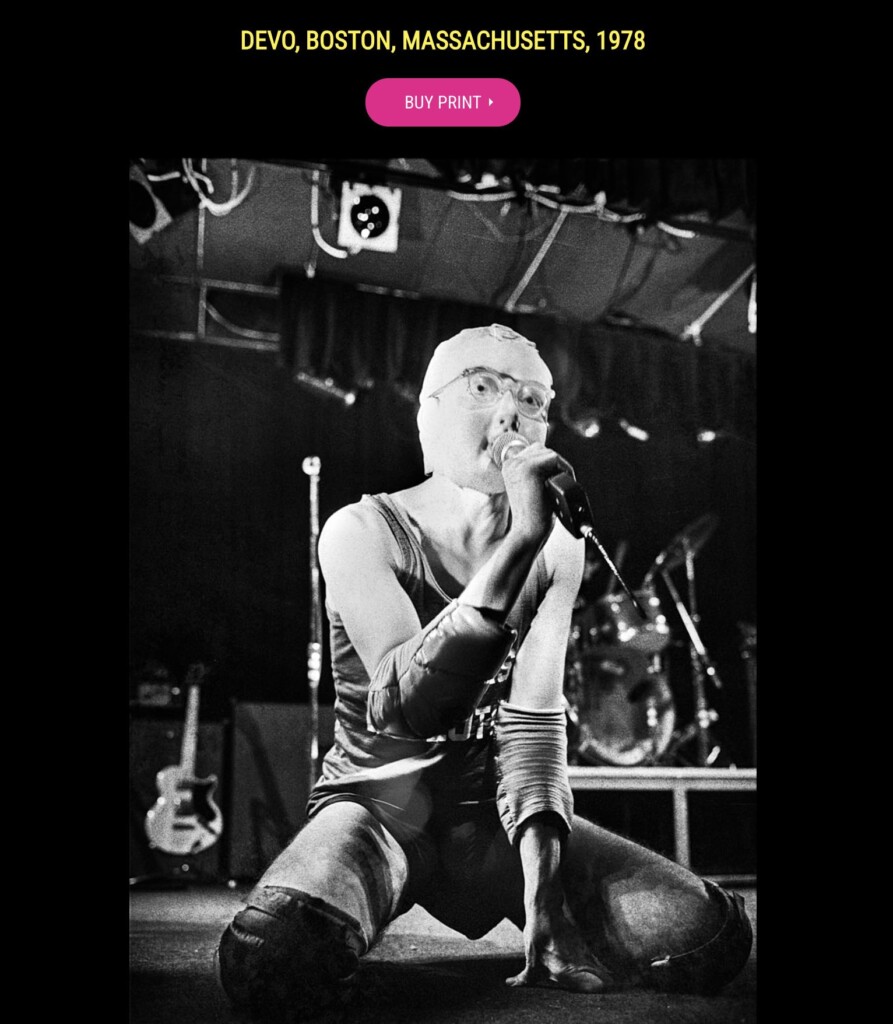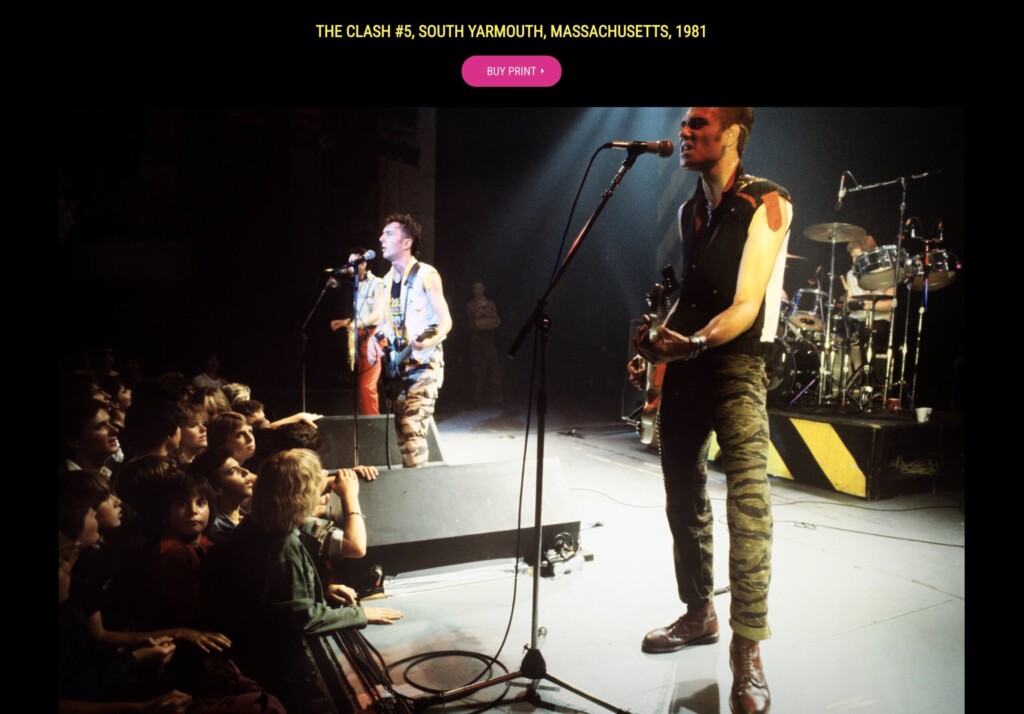The music genre known as Punk Rock by those on the outside looking in belittles the fact that it is an evolving cultural revolution. During its birth in the abandoned urban clubs from Boston to New York, it was mislabeled as a music of rebellion and a primal scream against the mundane establishment. It was more than that. It was the Punk Rock Renaissance that made Punk music still matter today.
Punk was not just music, it was a way of existence, a cultural revolution that reinterpreted life for the disillusioned, disaffected, and frustrated individuals. The driving rhythms of disagreement and pounding percussion were accented with primal conflict lead lines and guttural vocals that gave voice to a DIY energy that crossed generational boundaries to challenge the status quo.
The vinyl recordings captured the soundtrack of Punk while photographers like Michael Grecco who earned unfettered access captured the visual narrative of its lifestyle, music, art, philosophy, and culture.
Punk Roots
There is no doubt that Punk Rock led the charge and stuck its middle finger at the music industry that coopted the revolution of the counterculture. The grimy fingers of corporate greed turned the roots music of black blues, ska, gospel, and rock and roll into a stagnant, overproduced, homogenized money machine.
Punk Rock was its antithesis. Punk Rock and the culture it spawned thrived on a DIY ethos with self-produced and distributed records. It quickly attracted those who scoffed at traditional success metrics and produced a new personal and world view.
The new wave music of Punk born in suburban garages and urban clubs was a lightning rod for the birth of Punk Rock bands that became the recognized brand to the masses who clamored to latch on to the new flavor of Punk, its music, fashion, art, philosophy, goals or lack of them and its politics.
The Ramones, The Sex Pistols, and The Clash created a sound that was fast, aggressive, and politically charged. It captured and spat out the anger and disillusionment of a generation who refused to pay homage to meaninglessness. The 1970s into the 1980s was fueled by economic hardships, political instability, and a lust for freedom of expression. It all provided tinder for the soundtrack that created the punk culture. Punk was about rejecting the status quo, a spirit that still resonates today with those who refuse to wear the uniforms of conformity. Punk still matters today because it never went away. To claim there is a Punk Renaissance means that it died and was reborn again and then mysteriously saved.
The Punk Metamorphosis
When Michael Grecco captured the bold, raw, and authentic images of the legends Iggy Pop, The Clash, and The Ramones, and hundreds of others over the decades he was unknowingly documenting a living history that continues its metamorphosis decades later.
Punk matters today not because it is a nostalgic renaissance but because it is in a state of constant transformation. We even hear there will be a Till Tuesday reunion coming soon. Those that were not born when CBGBs and The Rat were the hallowed stages of Punk Music continue to gravitate to its DIY ethos.
The music of Punk is accessible on vinyl and digitally and the images of Michael Grecco have and continue to provide generations with a visual memory of its earlier metamorphosis.
The music genre known as Punk Rock by those on the outside looking in belittles the fact that it is an evolving cultural revolution. During its birth in the abandoned urban clubs from Boston to New York, it was mislabeled as a music of rebellion and a primal scream against the mundane establishment. It was more than that. It was the Punk Rock Renaissance that made Punk music still matter today.
Punk was not just music, it was a way of existence, a cultural revolution that reinterpreted life for the disillusioned, disaffected, and frustrated individuals. The driving rhythms of disagreement and pounding percussion were accented with primal conflict lead lines and guttural vocals that gave voice to a DIY energy that crossed generational boundaries to challenge the status quo.
The vinyl recordings captured the soundtrack of Punk while photographers like Michael Grecco who earned unfettered access captured the visual narrative of its lifestyle, music, art, philosophy, and culture.
Punk Roots
There is no doubt that Punk Rock led the charge and stuck its middle finger at the music industry that coopted the revolution of the counterculture. The grimy fingers of corporate greed turned the roots music of black blues, ska, gospel, and rock and roll into a stagnant, overproduced, homogenized money machine.
Punk Rock was its antithesis. Punk Rock and the culture it spawned thrived on a DIY ethos with self-produced and distributed records. It quickly attracted those who scoffed at traditional success metrics and produced a new personal and world view.
The new wave music of Punk born in suburban garages and urban clubs was a lightning rod for the birth of Punk Rock bands that became the recognized brand to the masses who clamored to latch on to the new flavor of Punk, its music, fashion, art, philosophy, goals or lack of them and its politics.
The Ramones, The Sex Pistols, and The Clash created a sound that was fast, aggressive, and politically charged. It captured and spat out the anger and disillusionment of a generation who refused to pay homage to meaninglessness. The 1970s into the 1980s was fueled by economic hardships, political instability, and a lust for freedom of expression. It all provided tinder for the soundtrack that created the punk culture. Punk was about rejecting the status quo, a spirit that still resonates today with those who refuse to wear the uniforms of conformity. Punk still matters today because it never went away. To claim there is a Punk Renaissance means that it died and was reborn again and then mysteriously saved.
The Punk Metamorphosis
When Michael Grecco captured the bold, raw, and authentic images of the legends Iggy Pop, The Clash, and The Ramones, and hundreds of others over the decades he was unknowingly documenting a living history that continues its metamorphosis decades later.
Punk matters today not because it is a nostalgic renaissance but because it is in a state of constant transformation. We even hear there will be a Till Tuesday reunion coming soon. Those that were not born when CBGBs and The Rat were the hallowed stages of Punk Music continue to gravitate to its DIY ethos.
The music of Punk is accessible on vinyl and digitally and the images of Michael Grecco have and continue to provide generations with a visual memory of its earlier metamorphosis.

